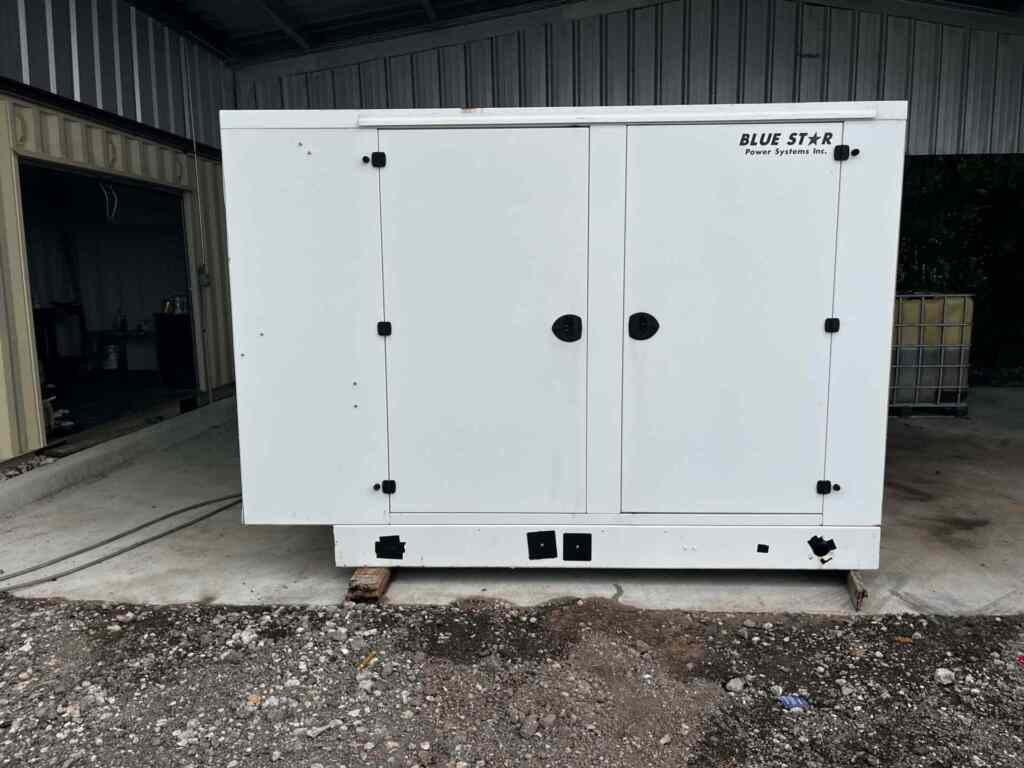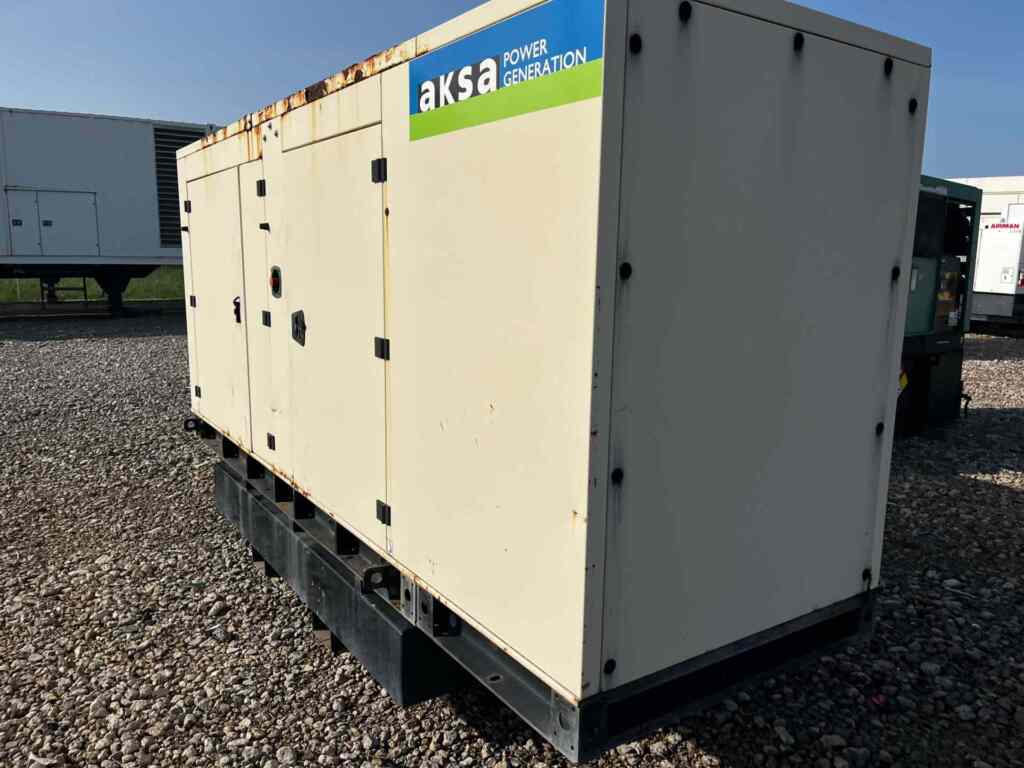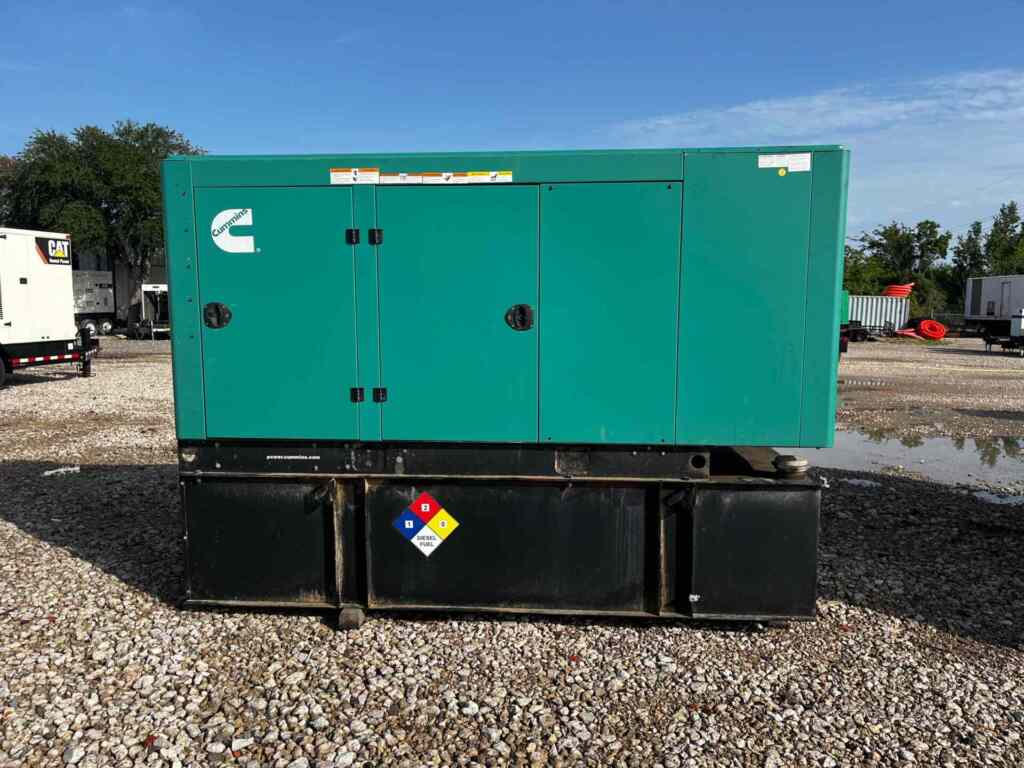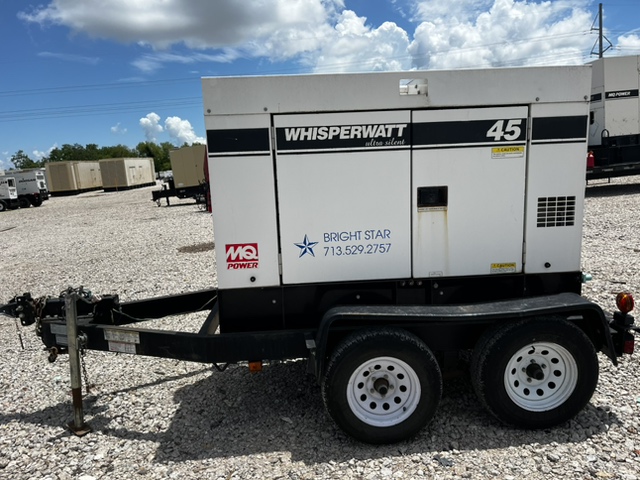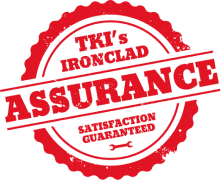Buying a commercial generator to power your business or job site is a big investment, so it is important to keep generator maintenance top of mind – especially as summer temperatures heat up. During a power outage, many generators fail after a few days of continuous running. You may think you’ve bought a lemon if this happens, but most of the time the problem has been caused by low oil or no oil. Learning how to maintain a generator is important to keep your generator running, no matter how extreme the temperatures get. Keep reading to learn more tips and tricks to keep your cool as the temperatures climb.
4 Basic Steps To Keep Your Generator Running In The Summer
A generator can get quite the work out during the summer months, especially in areas of the country that are prone to seeing power outages after big storms. To keep your operation up and running, you’ll want to make sure your generator maintenance game is on point. Here are four simple steps to follow to keep your generator in peak condition:
- Track those temperatures – if you’ve invested in a diesel generator, you probably know that they run hot. But the hotter they run, the more the generator’s performance is affected. Most diesel generators are designed to run at a water temperature of around 80°. Once a generator approaches 90°, it will start deteriorating. If you notice that your coolant temperature has breached this threshold, try reducing the load for a while. But if your water temperature hits 95°, shut your generator down immediately. Of course, it is best to monitor these temperatures constantly to avoid this scenario in the first place. Keep an eye on your gauges and make sure your Diesel generator is in a cool environment (if possible).
- Keep your filters clean – a storm can blow all types of debris into your generator’s many filters. Check filters as regularly as possible to manage debris, and again during a storm if possible. Checking the air filter, oil filter, and diesel filter is part of routine generator maintenance – even the smallest buildup could cause problems and inefficiencies when you need your generator most.
- Keep it cool – making sure that your diesel generator is installed in a space that is cooled is vital. But keeping your generator topped off with an effective coolant is an important part of how to maintain a generator, too. This can impact the overall temperature of your generator during its run. If a generator is installed outside, try installing it out of direct sunlight when possible.
- Optimize your operations – heavy loads over a long period of time will wear out your diesel generator in any season, especially the summer. To keep your generator in prime condition, keep loads as low as possible (without underloading) and make sure your diesel generator has some cooling downtime.
How Important Is Oil For Your Generator?
When looking for the best generator oil, one of the most important considerations is finding an oil that works for the conditions where your generator operates. If you will be operating your generator in summer-like temperatures, you will want to find the best generator oil for hot weather. The first thing you should do is consult the owner’s manual for your generator. The manual should list the manufacturer’s recommendations for choosing an oil. Still, it’s a good idea to understand generator oil weight or viscosity.
Viscosity means the thickness of an oil at a particular temperature and is indicated by a numbered weight on the bottle, for example. 10W-30. The higher the first number, the more viscous the oil will be in winter.
Generally, running your generator in extremely cold temperatures will require a lower-viscosity oil, such as 5W-30, to ensure it will start. If your oil is too viscous during winter, the cold will make it thick, and it won’t move around the engine well. By contrast, in extremely hot temperatures, you should use higher-viscosity oil. That means 10W-30 is a good option in the summer.
Following A Generator Maintenance Schedule
Part of learning how to maintain a generator includes learning how often to change its oil! The frequency of your generator oil changes will depend on the type of generator, usage, and manufacturer guidelines. The first place to check is your generator owner’s manual, which will provide detailed information on how often to change the oil.
A good rule of thumb, however, is that most portable units require an oil change after every 100-200 hours of use. Obviously, you can run up the hours if you’re running your unit continuously during a power outage. That’s why it is a good idea to top off the oil whenever you refuel and plan on doing a full oil change before every 100 hours of use.
If your generator is brand new, the owner’s manual may tell you to change the oil after the first 25 hours of usage, known as the break-in period. After that, the 100–200-hour interval will begin to apply.
Make General Maintenance A Habit To Keep Your Investment Running
When changing the oil, it also makes sense to check other components like your filters and spark plug. Here are the items you need to pay attention to when planning out your maintenance schedule:
- Change the Oil Filter – A generator’s oil filter keeps dirt and debris out of the oil. You will need to keep the filter clean and change it often. However, lubricate the oil filter gasket with fresh oil before installing the replacement to ensure optimal operation.
- Maintain the Air Filter – As a rule of thumb, it’s best to replace your air filter. But if you want to clean it between changes, simply wash it in warm, soapy water and dry it gently with a clean cloth. Just be careful to not tear the filter.
- Check the Spark Plugs – If you’ve run your generator for any period of time, it’s a good idea to check your spark plug. In extreme conditions, you may want to check it more frequently. If the spark plug is dirty, you can clean it with a wire brush and replace it using a torque wrench. If it’s so dirty you can’t clean it effectively, replace it with a new one. Just be careful not to overtighten it or break the porcelain casing.
Oil is the lifeblood of your generator, so finding the best generator oil for hot weather is important if you live in a warmer climate. Keep the oil filled and fresh, especially during periods of heavy use. Of course, it is best to consult your owner’s manual for specific information about your generator and to have it serviced by a professional on a regular basis. But there’s no reason you shouldn’t be able to learn how to maintain a generator between service calls to help protect your investment and have it ready for when you need it most.
 Turnkey Industries offers a variety of high-capacity
Turnkey Industries offers a variety of high-capacity 